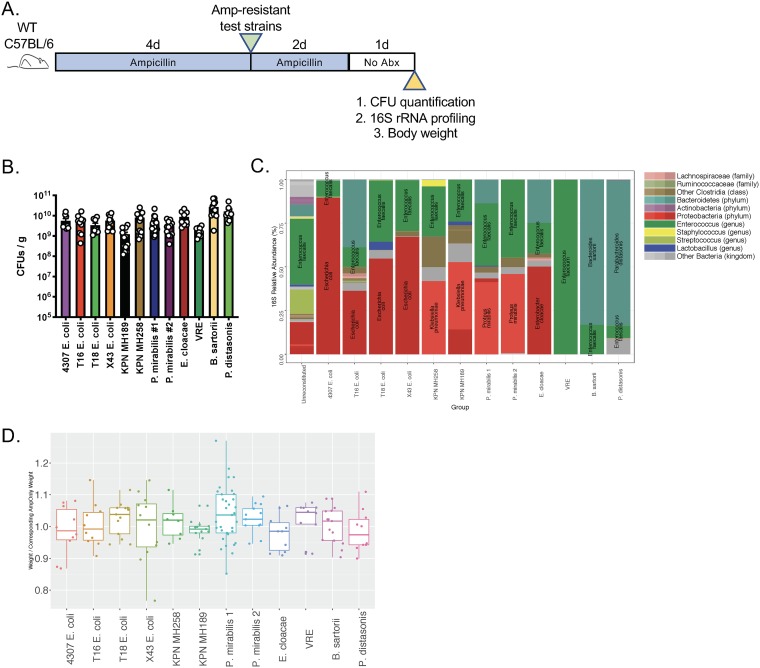FIG 1.
The microbiota of antibiotic-treated mice are receptive to ampicillin-resistant bacterial species. (A) Wild-type C57BL/6 mice (n, ≥10 per group; results from 17 independent experiments) were treated with ampicillin in drinking water (0.5 g/liter) for 4 days and were then inoculated with 2 × 104 CFU of 1 of 12 ampicillin-resistant bacterial strains. Two days after inoculation, ampicillin was removed from the drinking water. Fecal pellets were collected 1 day later. Abx, antibiotics. (B) The abundance of inoculated bacteria in fecal pellets (expressed as CFU per gram) was determined. (C) DNA was extracted from fecal pellets and was subjected to 16S rRNA PCR amplification and sequencing of the V4–V5 region. The average relative abundances of bacterial taxa for all mice of the same group are plotted. (D) The weight of mice in each group was divided by the weight of control mice in order to assess weight loss associated with colonization by ampicillin-resistant bacterial strains.

